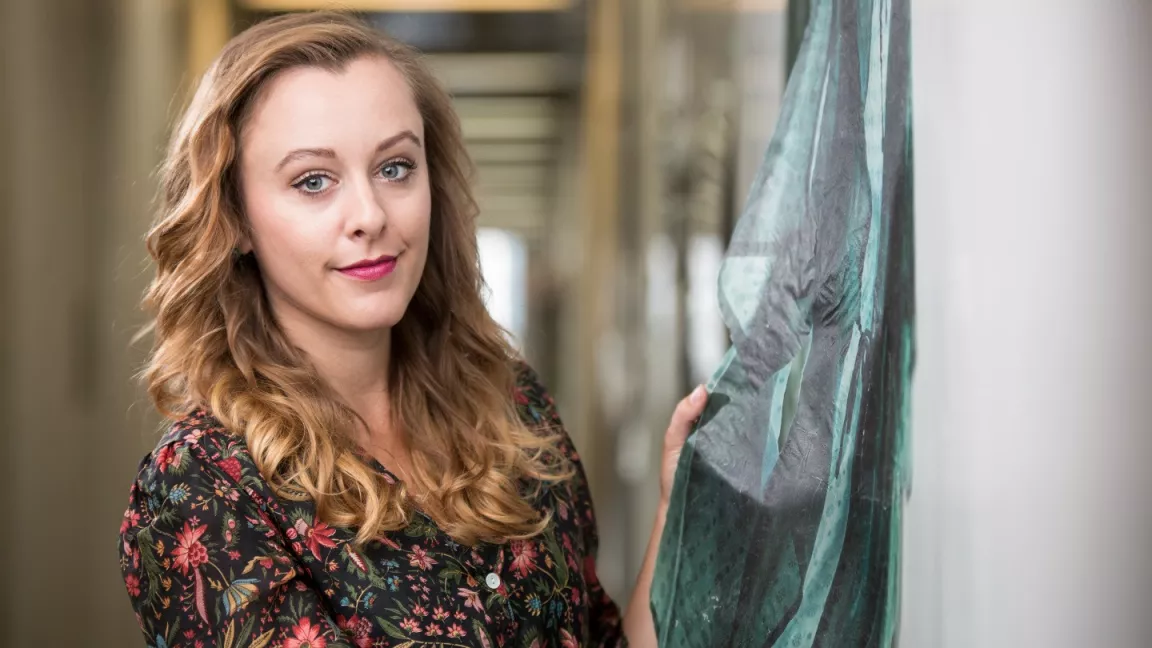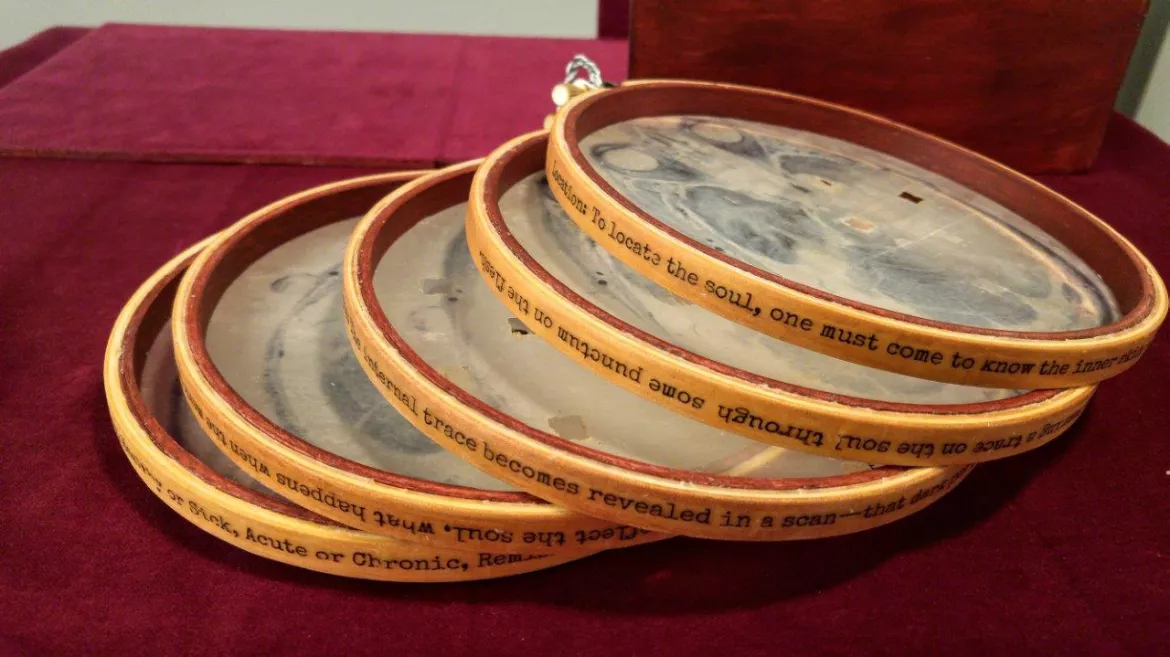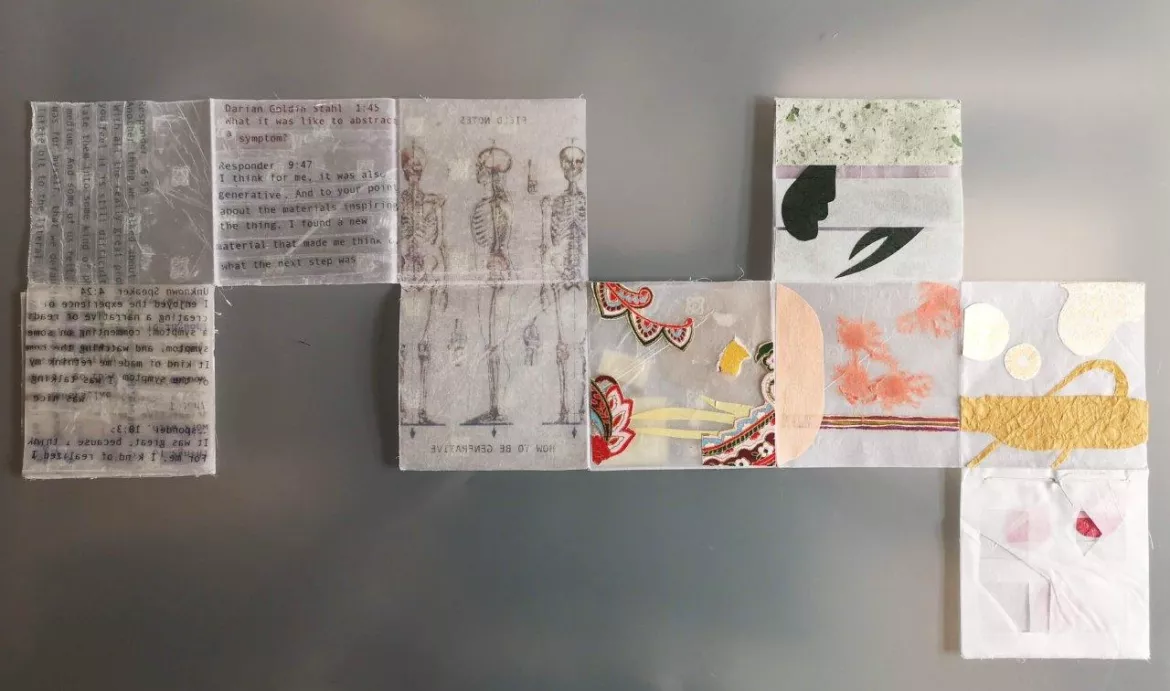Banting Postdoctoral Fellow explores lived experiences of illness through art
Dr. Darian Goldin Stahl is bringing art and medicine together through her 2021 Banting Postdoctoral Fellowship, a prestigious national research award. Working with Dr. Sarah de Leeuw, UNBC professor in Geography and with the UBC Northern Medical Program, Stahl is undertaking an artist’s book project highlighting the impacts of illness from a patient perspective, which will provide a unique learning resource for medical students.

The diagnosis may be the same, but illness affects each individual in a different way. Illness can be isolating, exhausting, bewildering and hard to share with others, even with your own physician.
Exploring an alternative, artistic method to express and communicate the impact of illness and care experiences has become a life’s work for Dr. Darian Goldin Stahl, a 2021 Banting Postdoctoral Fellow with UNBC. Initially inspired by her sister’s experiences with multiple sclerosis, Stahl is dedicated to using the medium of artists’ books to help patients better articulate their unique journey while also providing medical professionals, especially students, an opportunity to further understand the patients’ perspective.

“The artistry that can be incorporated into this medium goes far beyond a typical book, from collage-making to print art or paintings and so much more,” says Stahl, who studied printmaking in both her undergraduate and master’s degree programs. “The format of an artist's book really lends itself to a narrative that can incorporate not only text or images, but also sensory aspects such as touch and smell. It can become this amazing archive of experience held within a mobile book form.”
Stahl’s Banting project, titled Embodied Books: Binding Together Illness, Art, and Learning, will focus on connecting with a diverse representation of northern and interior B.C. residents through workshops to help participants create artists’ books about their lived experiences of illness and disability. Stahl will then pull together a collection of these special books with the aim of teaching medical students about the experience of medicine from the patient’s point of view.
“There can often be an overreliance on formally published narratives and I’m interested in representing patients whose stories are left out, perhaps because they cannot provide a coherent description of their experiences,” explains Stahl. “Artists’ books offer an opportunity for anyone to be able to tell you their story, in a way that doesn't rely on words whatsoever but on other sensory ways of communication.

“When you hold a book like this in your hands, it’s so impactful to know that somebody created this for you to discover more about them and their experiences in medicine, as an old person, or someone with disability, or as a young person who is ill. These books are powerful because they require you to take the time to explore them with your sensing body, helping to create a more empathetic relation to another person's story.”
The prestigious Banting Postdoctoral Fellowship program is designed to attract and retain top-tier researchers, both domestically and internationally. Each year, 70 fellowships are awarded, worth $70,000 a year for two years.
UNBC Geography Professor Dr. Sarah de Leeuw will supervise Stahl’s fellowship. De Leeuw is the Canada Research Chair in Humanities and Health Inequities, a Professor with the UBC Northern Medical Program and the Research Director of the Health Arts Research Centre (HARC) based at UNBC. Stahl is also a contributor to HARC; the centre will play a key role in Stahl’s initiative as it will form the main network for participants in the bookmaking project.
Stahl will also work closely with Briar Craig, a professor at the University of British Columbia – Okanagan, in his printmaking studio.
Stahl holds a bachelor’s degree (Indiana University) and a master’s degree (University of Alberta) in printmaking, and recently completed her PhD in humanities from Concordia University in Montreal. She was also a visiting scholar at the University of Kent in the UK in 2019, residing in their “Prescriptions Collection” of more than 70 artists’ books about illness, disability, medical encounters and bodily concerns.
“What I think is really exciting about this project is that it can be used again and again in the future,” adds Stahl. “This will be a physical archive to be used in perpetuity. These books can be picked up by medical students 20 years from now, and they will still be able to feel like they are present with the person that made the book and the emotions they were feeling during that moment in time. My hope is to make these lived experiences resonate with them as they're learning medicine, so that the patient is always represented.”